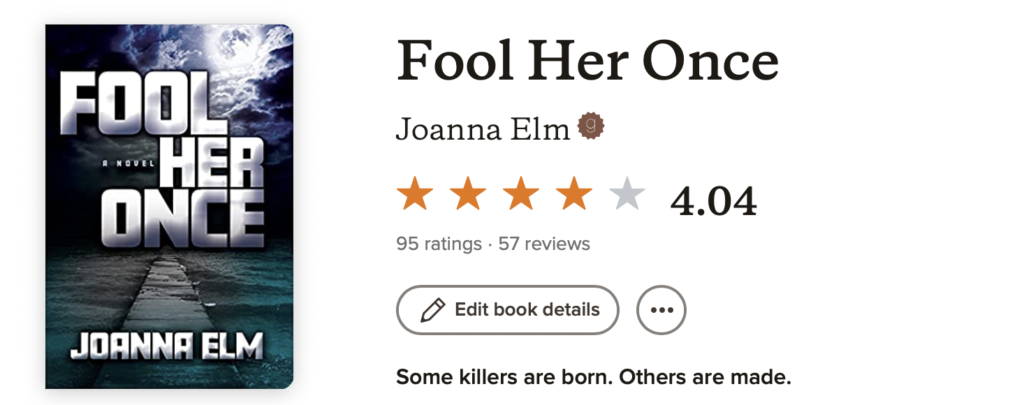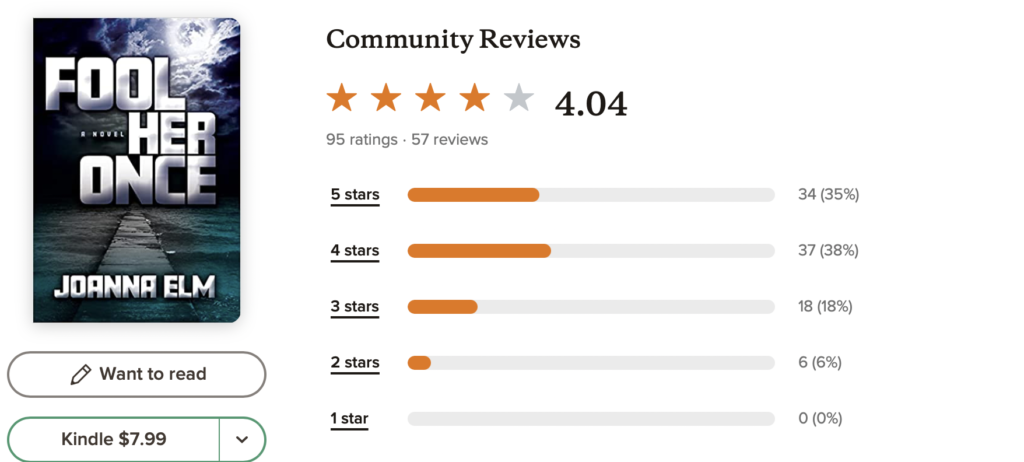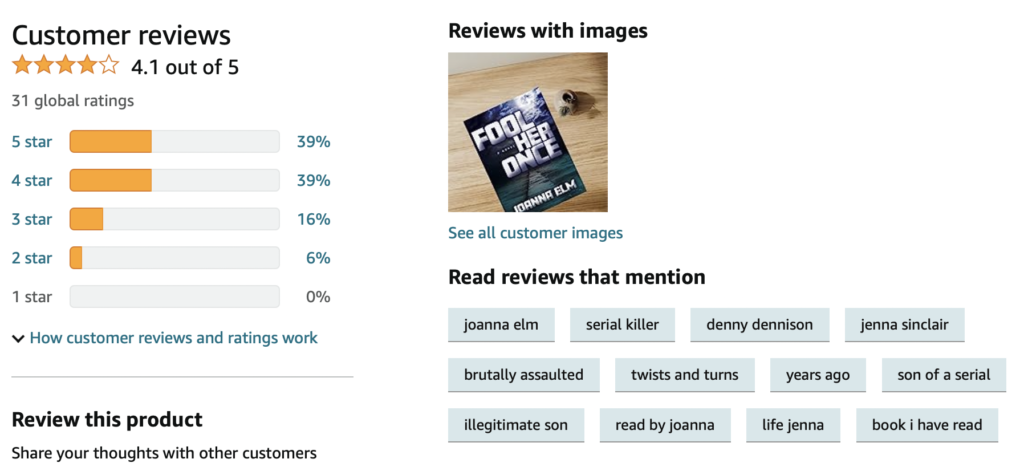Negative reviews can be devastating. “I know people who have never recovered,” says actor/director Seth Rogen of Green Hornet fame speaking recently about movie reviews. There are probably many authors who know exactly what he means. Well, here’s how to recover from your negative book reviews — maybe, even enjoy them.
Don’t Look For 5-Stars All The Time
Here’s the thing. As authors we all look for the five-star reviews on Goodreads, Amazon, and on any book blog tours for which we’re signed up. The closer we get to launch date, the more nervous we get about reviews and ratings on the Advance Review Copies which have been sent out by the author or publisher. But you’ve got know that not all your reviews are going to be 5-star reviews.

Why? Because some readers just aren’t going to be into your novel. Ask any bestselling or award-winning author who’s received rave reviews from all the industry trade publications. They’ll tell you they get their fair share of 1-star and 2-star reviews on Goodreads or Amazon. Not every reader is going to absolutely, totally, love your book. And, even if they are, their 3-star rating may mean the same as another reader’s 5-star rating.
What Do 3-Star Reviews Really Mean?
I had a 3-star review among the very first reviews of Fool Her Once last year. At first I was crestfallen because until then all the posted reviews were 5-star. But the closer I looked and re-read it, I realized how much positive comment was included in the review.

The 3-star reviewer started out by identifying the issues raised by my new thriller.
Joan wrote: “There are many issues explored in this novel. One deals with the offspring of serial murderers, and whether there is genetic influence. Another is the damage tabloids do in revealing potentially harmful information and the responsibility of the journalists. Another is just how well a person knows their spouse.”
Absolutely spot on! Those are exactly the issues I focused on in Fool Her Once. And, exactly the issues I wanted readers to focus on. Then, Joan wrote she didn’t like how the narrative of current day events was interrupted by the back and forth timeline.
She wrote: “The narrative includes a number of back flashes, clearly identified by date. Nonetheless, I did find that technique distracting from the momentum of the novel, especially if I quit reading mid-chapter.”
Understood. However, there’s very few psychological thrillers that don’t include a version of “then and now” or timelines that go back and forth between decades/years/months before the current timeline.
That’s because psychological thrillers usually depend on some secret from the past of the protagonist. So, one way or another, you’re going to need to get into the past. It’s tricky. And, sometimes difficult for an author to navigate between past and present.
Nevertheless, this reviewer did like the twist that comes early on in the book. Joan wrote: “I did appreciate the jarring twist that comes in a little over a third of the way into the book.”
And, that’s exactly what I wanted to hear. Joan appeared to have been totally engaged with my novel — and that’s worth its weight in gold, no matter what the star rating.

You Can’t Please All The People…All The Time
Since those early reviews, readers and reviewers appear to be divided about the past and present chapters structure in FHO. Some, were confused and thought those chapters stopped the momentum of the present-day action. Others, liked the back and forth between Jenna as rookie reporter and the more intrepid journalist who sets out to track down the man she suspects is targeting her loved ones.
Or, like one reviewer (bound4escape.com) wrote: “The story switches from the past to the present. At times near the beginning, I didn’t feel it was necessary, but the longer I listened, the more I realized that it was necessary.”

Flawed Protagonists
Some reviewers liked my female protagonist, Jenna Sinclair. They thought she was “smart,” “pretty classy and intelligent.” Others didn’t like her. One reader described her as having a “sense of entitlement.” Another thought she was “a bit selfish and pampered.”
It should go without saying that reading is very subjective. One reader’s viewpoint may be diametrically opposed to another reader’s view. Some readers/reviewers may not really be fans/admirers of your genre. A lot depends on a reader’s perspective and own life experiences.
At the book club discussion I visited last week, I asked whether the book club members thought Jenna was selfish and entitled? No. Not at all was the majority consensus as we sipped Proseccos at Swifty’s in the heart of Palm Beach!!
One reviewer of FHO pretty much hit the nail on the head when she wrote: “All the protagonists are flawed, but that’s what I want in my psychological thrillers.”
In, Gillian Flynn’s Gone Girl, hundreds of reviewers on Goodreads and Amazon despised female protagonist, Amy Dunne. (FYI: I mostly loved Amy. I thought she was smart and wicked, and I applauded her efforts to get even with her cheating husband, Nick!)
In any event, flawed protagonist, Amy Dunne, didn’t stop Gone Girl from becoming one of the biggest, bestselling psychological thrillers of all time. Just saying!
Over the last couple of weeks, I’ve had some lovely reviews posted on Goodreads and Amazon and on various book blogs taking part in an iRead Book Tour. My publisher CamCat Books organized the book blog tour to coincide with the publication of Fool Her Once in paperback.
Despite differences in opinion on the past/present structure and about my female protagonist, Jenna, most reviewers have loved the plot and the twists in the book. I’ve reproduced some of those reviews on this website on my Books page.
Next: The bestselling psychological thriller that just might have the most ever 1-star reviews!!! Why so many? And, why the author just might not care!
Yes, the dreaded negative reviews. I come across so many young authors who put their entire sense of worth into what readers say about their books, no matter how much it hurts. Because it will hurt. No book stays the perfect 5 forever. And nor should it. As a reader, when I come across a book that’s exclusively positive it makes me think something’s wrong with it. Natural ratings run across the spectrum because everyone is different and holds different opinions.
Of course, it can still be hard for authors to accept this. I used to obsess myself back when I released my debut novel. With experience though, I no longer bat an eye. If you want to succeed in anything, you have to be able to take shots and keep going. 🙂
Never a truer word spoken, Eldon. As you say, every reader is different and holds different opinions; and an author has to take the bad with the good. Once your book is out there in the world, you really don’t have any control over reader opinions.